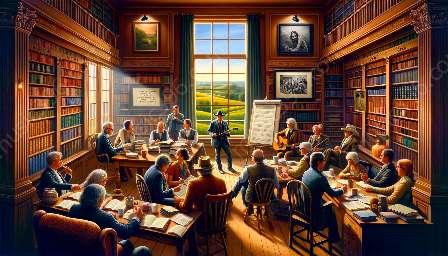Country music has long been a reflection of societal norms and values, and the portrayal of women in this genre has evolved significantly over the years. From traditional, gendered roles to empowered narratives, the evolution of women in country music is an intriguing journey that intertwines with iconic albums and singles. Let's delve into the history and explore the changing landscape of women in country music.
Early Portrayal: Traditional Gender Roles
Country music's early roots often portrayed women in traditional, gendered roles. Women were frequently depicted as homemakers, caretakers, and romantic interests. The songs reflected the societal expectations of the time, emphasizing the virtues of domesticity and the challenges of romantic relationships. Iconic albums and singles from this era often highlighted the themes of love, heartbreak, and domestic life, contributing to the perpetuation of traditional gender roles.
Memorable Albums and Singles:
- Patsy Cline - 'Greatest Hits' (1967): Patsy Cline's timeless hits, such as 'Crazy' and 'I Fall to Pieces,' exemplify the emotional turmoil and vulnerability often associated with women in traditional country music.
- Loretta Lynn - 'Coal Miner's Daughter' (1970): Loretta Lynn's autobiographical album showcased the struggles and resilience of women in rural America, capturing the essence of traditional gender roles.
Shifting Narratives: Empowerment and Independence
As societal norms evolved, so did the portrayal of women in country music. The 1980s and 1990s saw a significant shift in narratives, with female artists embracing themes of empowerment, independence, and resilience. Women in country music began challenging traditional gender roles, asserting their strength and agency through their music. Iconic albums and singles from this era reflected the changing attitudes towards women, spotlighting their determination and individuality.
Memorable Albums and Singles:
- Shania Twain - 'Come On Over' (1997): Shania Twain's groundbreaking album redefined the portrayal of women in country music, featuring anthems of empowerment and self-expression, such as 'Man! I Feel Like a Woman!' and 'That Don't Impress Me Much.'
- Reba McEntire - 'Read My Mind' (1994): Reba McEntire's album challenged traditional gender roles with songs like 'Why Haven't I Heard From You,' showcasing assertiveness and independence.
Contemporary Era: Diversity and Authenticity
The contemporary era of country music continues to witness a diverse portrayal of women, highlighting their authenticity and multidimensionality. Female artists are embracing a wide range of narratives, from personal struggles to societal commentary, and are redefining the traditional boundaries of the genre. Iconic albums and singles in the contemporary country music landscape showcase women's resilience, individuality, and diverse experiences.
Memorable Albums and Singles:
- Miranda Lambert - 'Wildcard' (2019): Miranda Lambert's album 'Wildcard' explores the complexities of modern womanhood, featuring songs like 'It All Comes Out in the Wash' and 'Bluebird' that capture the essence of authenticity and vulnerability.
- Kacey Musgraves - 'Golden Hour' (2018): Kacey Musgraves' Grammy-winning album defies genre conventions and celebrates diverse narratives, including tracks like 'Space Cowboy' and 'High Horse' that showcase resilience and self-discovery.
In summary, the portrayal of women in country music has undergone a remarkable evolution, reflecting societal changes and the shifting perspectives on gender roles. From traditional themes of love and domesticity to narratives of empowerment and authenticity, women in country music have continually redefined their roles and reshaped the genre. The timeless albums and singles mentioned represent pivotal moments in this evolution, capturing the spirit and resilience of women in country music.























